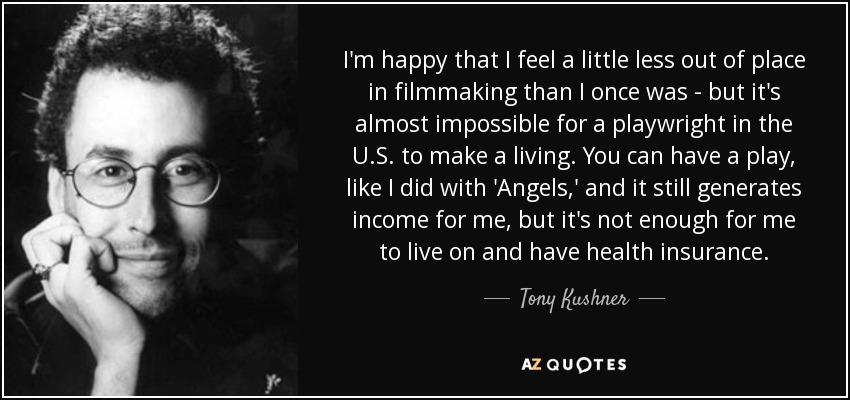Filmmaking Quotes - Page 7
-
-
 I'm happy that I feel a little less out of place in filmmaking than I once was - but it's almost impossible for a playwright in the U.S. to make a living. You can have a play, like I did with 'Angels,' and it still generates income for me, but it's not enough for me to live on and have health insurance.
I'm happy that I feel a little less out of place in filmmaking than I once was - but it's almost impossible for a playwright in the U.S. to make a living. You can have a play, like I did with 'Angels,' and it still generates income for me, but it's not enough for me to live on and have health insurance.
-









